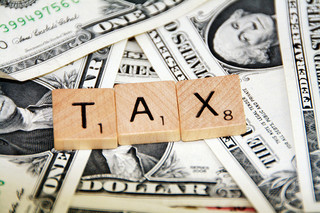<p>A ballooning business and accounting nightmare may present itself to UK businesses in 2013 unless the government takes a definitive position on what is called the “Amazon Tax Issue.” Currently online purchases are tax-free. Amazon also offers certain membership plans that eliminate delivery charges.<br />
The tax free products put UK businesses at a big disadvantage compared to online providers. John Lewis, a managing director with Andy Street, said Amazon could “out-invest and out-trade” UK retailers.<br />
The online tax-free issue is one more puzzling battle with which MPs are currently struggling. Coupled with the larger issue of why multinationals in the UK are paying extremely low taxes compared to nationals, the online tax-free status raises more questions about the UK’s ability to compete in a global economy.<br />
Last week a committee of MPs convened to investigate how multinationals have managed to pay so little corporate tax in the UK. Three of the most prominent businesses in the world are believed tohave successfully avoided paying a proper share of taxes.<br />
<strong>UK Businesses Cry Foul</strong><br />
Lewis pointed out that UK businesses were at a disadvantage because of the 27 percent tax most must pay. “There is less money to invest if you are giving 27 percent of your profits to the Exchequer. Clearly, if you are domiciled in a tax haven, you’ve got much more money to invest.”<br />
If online enterprises remain tax-free, and if internationals are not paying their fair share of taxes, business in the UK will be unable to compete in research and development and the overall tax base will continue to decline. This is a problem not that is exclusive to the UK but it is an issue that needs attention immediately.<br />
<strong>New Taxes For Multinationals</strong><br />
The most equitable arrangement would be to tax multinationals on a new, fixed, country by country rate. In terms of the Amazon threat, not much headway has been made and the biggest online providers have defied MP inquiries. Most recently, representatives from Google, Amazon and Starbucks appeared before the Public Accounts Committee. Andrew Cecil of Amazon was the least cooperative in questioning, leading the Committee with no choice but to order higher officers from the huge trading company to attend another session.<br />
The onus is not on Amazon to change their business model. The pressure is on MPs to design appropriate tax law that levels the playing field. The UK wants multinationals but we don’t want them to have tax structures that threaten our own businesses.</p>
<h5>Featured images:</h5>
<ul>
<li> <span class="license">License: Creative Commons</span> <span class="source">image source</span></li>
</ul>
<p>This article was provided by Apple Tree, Small Business Accountants in Witney.</p>

Multinational And Online Tax Issues
